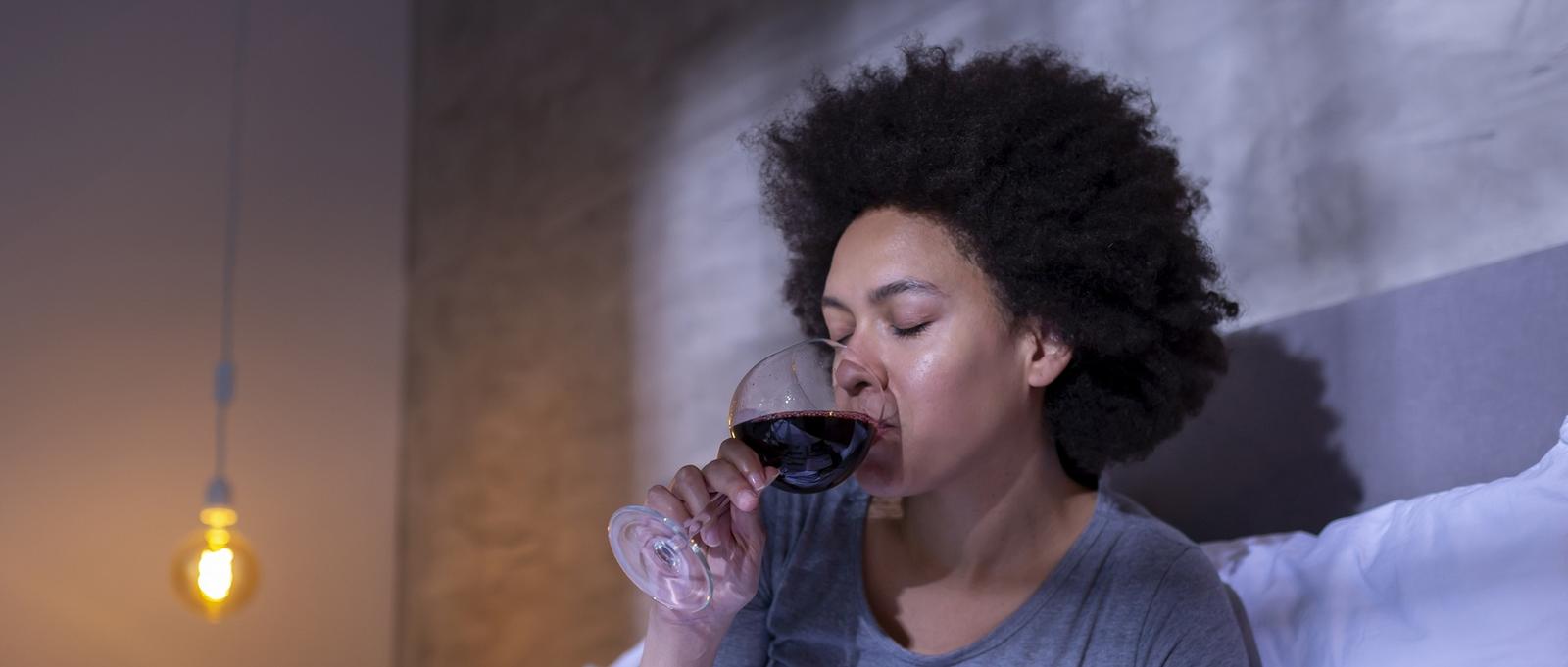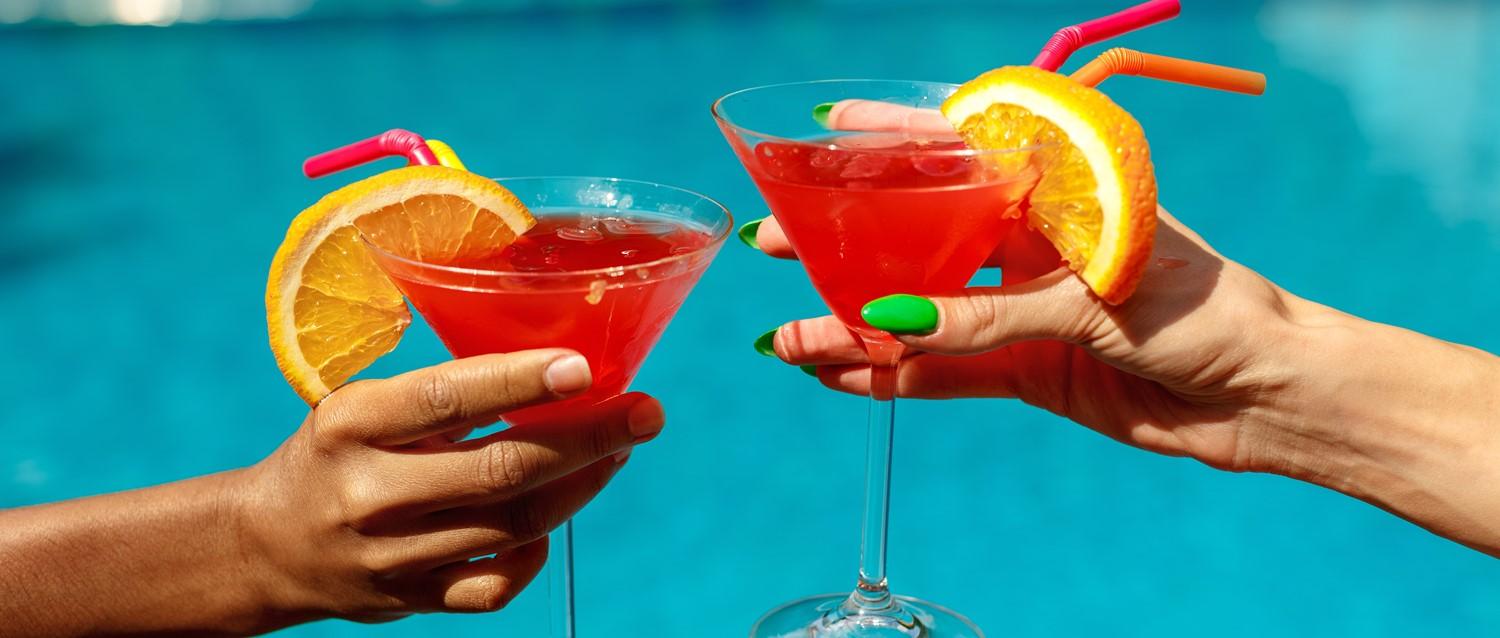
Pourquoi la consommation d'alcool nuit-elle au sommeil ?
Révision par les pairs : Dr Krishna Vakharia, MRCGPDernière mise à jour par Victoria RawDernière mise à jour : 4 décembre 2024
- TéléchargerTélécharger
- Partager
Sometimes after drinking, it can feel like you're asleep before your head hits the pillow. However, in truth, the rest of your night's sleep will be disturbed by the alcohol in your system. You might wake up more than usual in the night - and feel exhausted in the morning. But why does alcohol affect your sleep?
Dans cet article :
Poursuivre la lecture ci-dessous
How alcohol affects your sleep
Sommeil perturbé
At first, drinking alcohol can make you feel sleepy and relaxed, because it has a sedative effect on your central nervous system. Although this means you might fall asleep quicker, drinking too much alcohol has been linked to poor sleep quality, which means you're more likely to have a bad night's sleep.
After you drink alcohol, it is absorbed into your bloodstream and processed in the liver. How long this takes can depend on many factors - including the amount of alcohol, your age, how much you've eaten, your sex, and your body type.
If you fall asleep after drinking too much, your body will continue to break down the alcohol during the night. As your body works to lower your blood alcohol level, you may experience disrupted sleep and wake up more often than usual.
In turn, this affects all the different phases of sleep we get a night - which are usually finely tuned to make sure we are rested and our brains can function properly. This includes disrupting our restful deep sleep, or REM sleep, leading to more periods of wakefulness.
The occasional bad night's sleep may be unpleasant, but is unlikely to have a lasting effect. However, studies have shown that a continuous lack of REM sleep can negatively affect memory and learning, may impact our emotional abilities and increase the chance of migraine. Poor sleep has also been linked to an increased likelihood of mental health problems such as anxiety and depression, hypertension, obesity, heart attack and stroke.
Sélection de patients pour Conseils sur l'alcool

Vie saine
Boire au soleil : un cocktail dangereux
Picture the scene - it's a hot, sunny day and you're strolling through the park, or perhaps along a beach. Chances are, you'd see people drinking alcohol with their friends. However, did you know that drinking in the sun can come with a number of risks?
par Emily Jane Bashforth

Santé digestive
Alcool et consommation raisonnable d'alcool - limites de sécurité
Au Royaume-Uni, près de la moitié des adultes boivent de l'alcool une fois par semaine ou plus. Environ un quart de tous les adultes déclarent boire plus que la limite hebdomadaire recommandée d'alcool.
par le Dr Doug McKechnie, MRCGP
Alcohol and toilet trips
If you drink alcohol before bed, you may also find yourself getting up more often in the night to go to the toilet. Alcohol is a diuretic, which means you pee and sweat more. This can also make you feel even more dehydrated.
Alcohol and sleep apnoea
Research has also shown that alcohol use can worsen the symptoms of sleep apnoea, a disorder in which your breathing stops and starts while you sleep. The most common type is called obstructive sleep apnoea. Even if you don't have the condition, studies show that moderate or heavy drinking can cause episodes of obstructive sleep apnoea.
Why drinking makes you snore
Drinking alcohol relaxes the muscles around your throat, making you more likely to snore too. This is because alcohol can make the tissue in the nose swell, which can cause congestion and create a need to breathe through the mouth, making you snore. Snoring may well disturb your own sleep by waking you up - but it is likely to cause problems for partners too.
Is a nightcap before bed still ok?
The short answer is - no. Some people feel that drinking alcohol before bed helps them doze off better. However, though it may get you to sleep quicker in the short term, you'll most likely wake up in the night as a result. Aim to have finished your final drink at least three hours before you go to bed.
Poursuivre la lecture ci-dessous
How to get a good night's sleep
If you're relying on alcohol to fall asleep, you should seek out healthier alternatives. You can do this by speaking to your doctor, practicing mindfulness techniques, or by incorporating regular sleep schedules and calming bedtime routines. Avoid napping during the day, don't smoke or drink caffeine before bed, and cut down on your screen time as you're settling down to sleep.
Alcohol guidelines
Men and women are advised not to drink more than 14 units of alcohol a week. It helps to know how many units are in a drink - 14 units is the same as six pints of average-strength beer or ten small glasses of lower-strength wine.
If you want to cut down, it can help to have several drink-free days each week. If you're at a party, you could try opting for a soft drink or glass of water between alcoholic drinks, which will help keep you hydrated and mean you drink less alcohol over the night.
Historique de l'article
Les informations contenues dans cette page ont été évaluées par des cliniciens qualifiés.
Date de la prochaine révision : 4 décembre 2027
4 Dec 2024 | Dernière version
17 Jan 2024 | Publié à l'origine
Auteur: :
Lydia Smith

Demandez, partagez, connectez-vous.
Parcourez les discussions, posez des questions et partagez vos expériences sur des centaines de sujets liés à la santé.

Vous ne vous sentez pas bien ?
Évaluez gratuitement vos symptômes en ligne